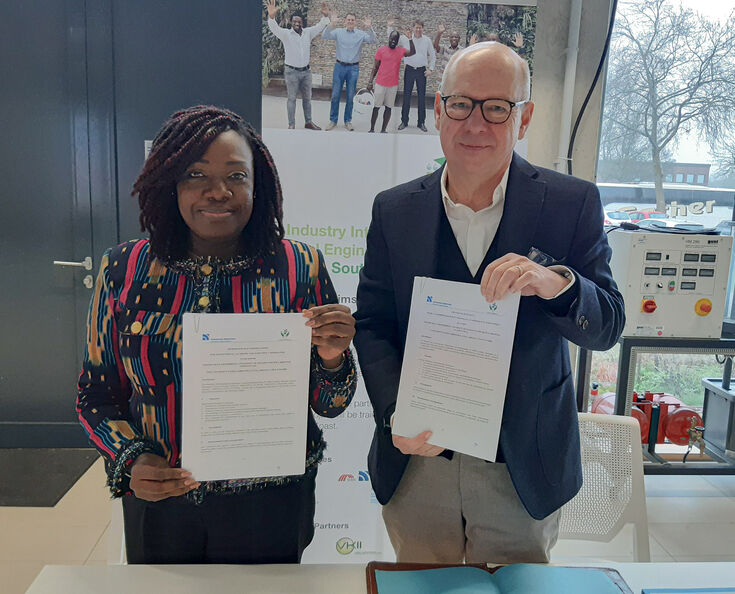Now it is officially sealed: The Hochschule Niederrhein and the University of Nangui Abrogoua in the West African state of Côte d'Ivoire are going into partnership- and have signed a cooperation agreement to this end.
"It is very important to us to have the opportunity to exchange ideas in the long term," said University President Dr. Thomas Grünewald, who signed the declaration of intent together with Université Vice President Dr. Taky Hortense Atta Epse Diallo. She visited the campus last week with a delegation. With this cooperation, the HSNR is setting another important building block to position itself even more internationally.
The joint project Industry Integrated Dual Engineering Studies in a North-South Collaboration (IIDES-NSC) is about helping people to help themselves in developing countries. In concrete terms, Ivorian students will develop two prototypes for a system that can ensure decentralized, solar-powered electricity and water supplies in rural areas. The long-term effect: with the know-how and practical skills imparted, more and more residents will be empowered to develop their own solutions for the population in their home country. The learning effect on an international level is also an enormous enrichment for the university.
In the meantime, ten students from Côte d'Ivoire have prevailed in an assessment center conducted on site and thus qualified, so that the best five women and men will develop the first prototype according to German safety and hygiene standards. This is reported by Lukas Saars from the SWK E² - Institute of Energy Technology & Energy Management, who is accompanying the project as an academic staff member.
The prototypes are to be developed as part of a two-and-a-half-year dual studies program. Together with two cooperating companies, development, production and commissioning will take place in Germany, and finally the system will be handed over to the Ivorian partner university.
According to Saars, the plant could supply around 300 to 500 people in the village of Legroskro near Duékoué. The project is financially supported by the German Academic Exchange Service (DAAD) with funds from the Federal Ministry for Economic Cooperation and Development (BMZ) with around 719,000 euros for four years.


















